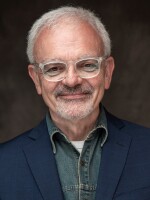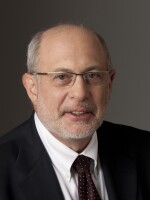MELISSA BLOCK, host:
This is ALL THINGS CONSIDERED from NPR News. I'm Melissa Block.
ROBERT SIEGEL, host:
And I'm Robert Siegel.
Barack Obama's foreign tour took him to Paris today. The Democratic presidential candidate met with French President Nicholas Sarkozy. At a news conference afterwards, they stressed a cross-Atlantic friendship. Obama said that in their meeting, they spoke of common issues of concern - the Middle East peace process, Afghanistan, Iraq and Iran. And he called on Iran to give up its nuclear ambitions now - not after the November election.
Senator BARACK OBAMA (Democrat, Illinois; Presidential Candidate): Iran should accept the proposals that President Sarkozy and the EU-3 plus 3 are presenting now. Don't wait for the next president, because the pressure, I think, is only going to build.
NPR's Don Gonyea was at the news conference in Paris. We reached him afterwards. He was on a bus heading for the airport in the final stop of the Obama tour, London.
And Don told us that another hallmark of today's event was Obama's refusal to criticize President Bush.
DON GONYEA: A French journalist asked the question about where America has not handled things properly over the past eight years, and Senator Obama said we have a long tradition in our country - one, he added, that's not always followed, but he said he likes it and that is when you are overseas, you do not criticize a seating president of the United States. So he just didn't take the bait on that question.
SIEGEL: As we heard in the news conference today, Barack Obama said Iran should accept proposals being made to it now, they shouldn't wait for the next president, as if to say don't think you're going to get a better deal from me than you'll get with George Bush. Any sense of the European reaction to that?
GONYEA: Well, Sarkozy did not react specifically, except each man said that they agree that Iran poses a very serious threat and it's one that they need to work together on. In fact, of all of the meetings that Senator Obama had on this nine-day trip, he did say the one thing that he has found uniformity on is agreement, that Iran is a threat and that tough talk is really necessary to convince them to give up whatever nuclear ambitions they have.
SIEGEL: Don, you asked Senator Obama at the news conference, what he's learned on his trip to Afghanistan, Iraq, Israel, the West Bank, Germany, now France - what did he say to you? How does he describe this learning experience?
GONYEA: And I asked if what he has learned - any of what he has learned would cause him to refine any of his positions. He said, listen, it doesn't hit you like a lightning bolt revelation. You see things, you learn things, you're surprised by things, but you take it in and you process it. And it may come out in policy down the road, but it's not like you have a sudden change.
SIEGEL: You know, Don, the scene of Barack Obama and Nicholas Sarkozy having a news conference each at his podium, it looked very much like a presidential event, an event for two presidents.
GONYEA: This is exactly the kind of picture that Senator Obama wanted out of his trip. Him being very comfortable in the suit, standing side-by-side with a head of state. In this case, they seemed like old friends, and at one point, Senator Obama reminded a questioner, it must be clear, I'm not president of the United States.
SIEGEL: Well, how does Sarkozy avoid giving the impression that he's part of the Obama campaign and that he's contributing to Barack Obama's campaign to be president.
GONYEA: He barely avoided it. He seemed to be endorsing him. And I asked him about that, and he said, of course, the American people choose their president. No, I'm not endorsing him. But then, he proceeded to say so many good things about him and all they had to talk about and how much he looks forward to working with him. Then he said, if they elect someone else, well then, we'll work with that person, too. But there was not quite the enthusiasm for that part of the answer.
SIEGEL: NPR's Don Gonyea, speaking to us from the Obama campaign abroad earlier today in Paris. Thank you very much, Don.
GONYEA: All right. It's a pleasure. Transcript provided by NPR, Copyright NPR.







